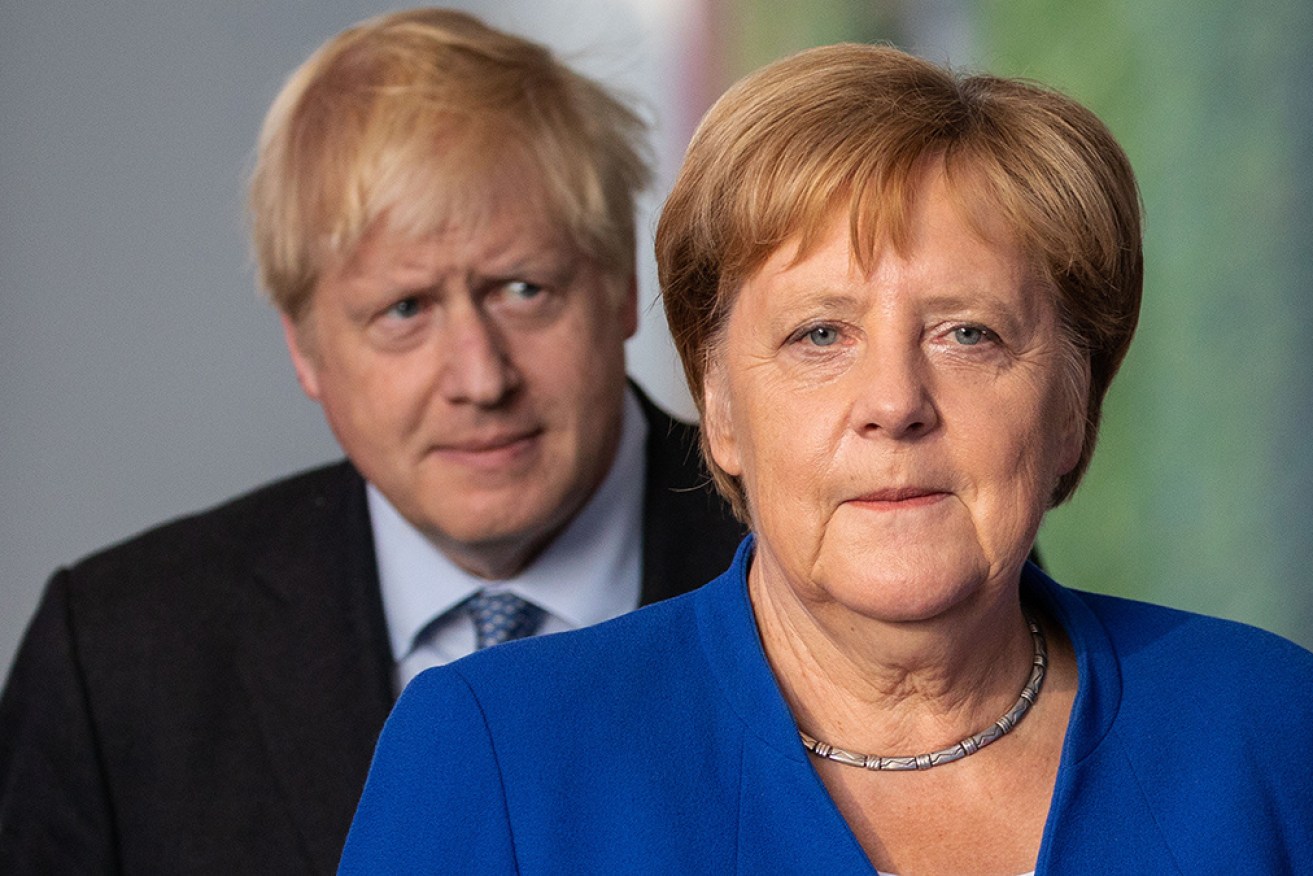G7 vows ‘equitable’ world coronavirus vaccine access

Boris Johnson and Angela Merkel have urged unity on the issue of vaccination. Photo: Getty
Leaders of the Group of Seven economic powers have promised to immunise the world’s neediest people against the coronavirus by giving money and precious vaccine doses to a UN-backed vaccine distribution effort.
But the leaders, under pressure over their vaccination campaigns at home, were unwilling to say exactly how much vaccine they were willing to share with the developing world, or when.
Chancellor Angela Merkel said after the G-7 leaders held a virtual meeting that fair distribution of vaccines was “an elementary question of fairness”.
After their first meeting of the year – held remotely because of the pandemic – the leaders said they would accelerate global vaccine development and deployment” and support “affordable and equitable access to vaccines” and treatments for COVID-19.
“This is a global pandemic, and it’s no use one country being far ahead of another,” British Prime Minister Boris Johnson said as he opened the virtual summit with the leaders of the United States, France, Germany, Italy, Canada and Japan. The UK holds the G7 presidency this year.
“We’ve got to move together,” Mr Johnson said from his Downing St residence. “So, one of the things that I know that colleagues will be wanting to do is to ensure that we distribute vaccines at cost around the world.”
Wealthy nations have snapped up hundreds of millions of doses of COVID-19 vaccines, while some countries in the developing world have little or none.
Mr Johnson promised to give “the majority of any future surplus vaccines” to the UN-backed COVAX effort to vaccinate the world’s most vulnerable people.
French President Emmanuel Macron said Europe and the US should allocate up to five per cent of their current COVID-19 vaccine supplies to the poorest countries “very fast”.
In an interview with the Financial Times, Mr Macron noted Russia and China had been quick to offer doses of their own products to some African nations.
As the African continent awaits delivery of doses through COVAX, an African Union-created vaccines task force said it would get 300 million doses of Russia’s Sputnik V vaccine in May.
The African Union previously secured 270 million doses from AstraZeneca, Pfizer and Johnson & Johnson.
Aid groups welcomed the G7 commitments but said rich Western countries needed to do more, and soon.
Gayle Smith, chief executive of anti-poverty group the ONE Campaign, said “world leaders are finally waking up to the scale of this crisis”.
The summit marked Joe Biden’s first major multilateral engagement since taking office. America’s allies hope that US re-engagement with the world following the “America first” years under Donald Trump will mean a more co-ordinated response on global issues.
Mr Biden signed the US up to the COVAX initiative, which Mr Trump refused to support, and has pledged to distribute $US4 billion ($A5.1 billion) in US funding to the program.
The G7 meeting came on the day the United States officially rejoined the Paris climate agreement. Mr Trump pulled the US out of the landmark accord in 2017.
In a joint statement, the G7 leaders vowed to “make 2021 a turning point for multilateralism and to shape a recovery that promotes the health and prosperity of our people and planet”.
A full G7 summit will take place in June at Carbis Bay in England.
-AAP








